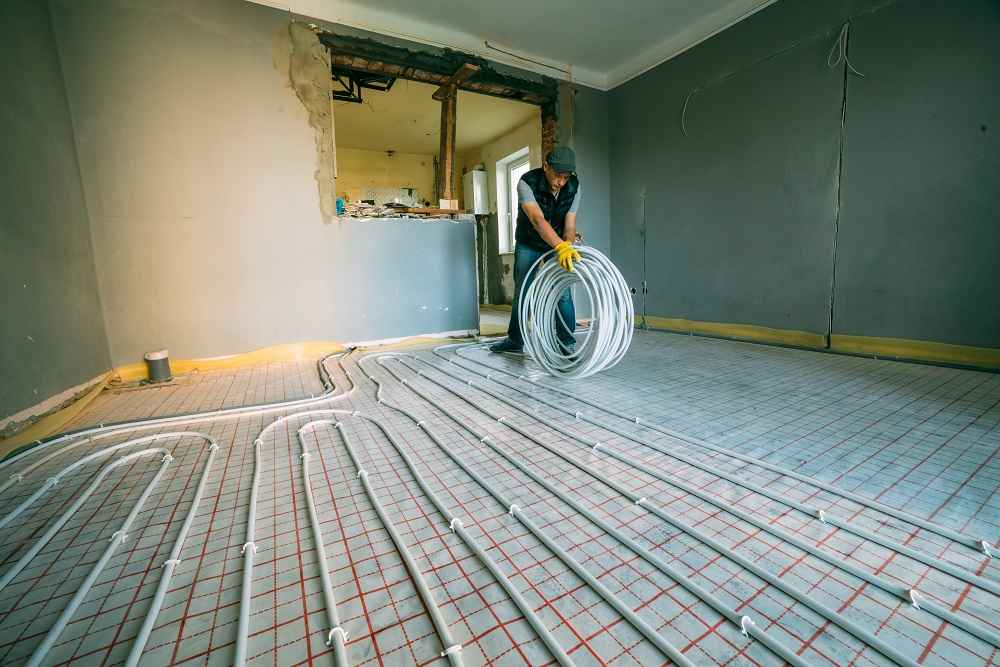Building Systems
What are Building Systems?
Building systems refer to the various components and subsystems that work together to support the functionality, comfort, and safety of a building. These systems include structural, mechanical, electrical, plumbing, and fire protection systems, as well as elements such as insulation, roofing, and fenestration. Each building system plays a critical role in the overall performance of a structure, contributing to its durability, energy efficiency, indoor environmental quality, and occupant satisfaction.
At its core, the design and integration of building systems require careful coordination and collaboration among architects, engineers, contractors, and other building professionals to ensure that they meet the needs of the building occupants while adhering to regulatory requirements and industry standards.
Why learn Building Systems nowadays?
Learning about building systems is essential for architects, engineers, contractors, and building professionals involved in the design, construction, operation, and maintenance of buildings. In today’s rapidly evolving built environment, where sustainability, resilience, and technological advancements are becoming increasingly important, a thorough understanding of building systems is critical for delivering high-performance buildings that meet the needs of occupants and stakeholders. Here are several reasons why learning about building systems is important:
Firstly, understanding building systems promotes efficient and sustainable building design and construction practices. By integrating passive design strategies, energy-efficient technologies, and renewable energy systems into building systems, designers and engineers can reduce energy consumption, minimize environmental impact, and enhance building performance while ensuring occupant comfort and well-being.
Secondly, building systems knowledge enhances safety and resilience in buildings. By designing and installing robust structural, mechanical, electrical, and fire protection systems, building professionals can minimize the risk of structural failure, fire hazards, and other safety concerns, ensuring the safety and well-being of building occupants and users.
Work in Building Systems
Working in building systems offers a variety of career opportunities for individuals interested in the design, construction, operation, and maintenance of buildings. Here are some key areas where professionals can find rewarding work in building systems:
· Mechanical Engineering: Mechanical engineers specialize in the design, installation, and maintenance of HVAC (Heating, Ventilation, and Air Conditioning) systems, plumbing systems, and fire protection systems in buildings. They develop system layouts, select equipment, perform load calculations, and ensure compliance with regulatory requirements and industry standards.
· Electrical Engineering: Electrical engineers focus on the design, installation, and maintenance of electrical distribution systems, lighting systems, and fire alarm systems in buildings. They develop electrical plans, specify equipment, calculate electrical loads, and coordinate with utility providers to ensure reliable and safe electrical supply to buildings.
· Structural Engineering: Structural engineers are responsible for the design, analysis, and inspection of building structures to ensure their safety, stability, and durability. They analyze structural loads, design structural systems, select materials, and oversee construction to ensure compliance with structural engineering principles and building codes.
· Building Automation and Controls: Building automation specialists design, install, and maintain building automation and control systems that regulate and monitor building systems, such as HVAC, lighting, and security systems. They program control systems, integrate sensors and actuators, and optimize system performance to enhance energy efficiency and occupant comfort.
· Energy Management: Energy managers focus on optimizing energy performance in buildings through energy audits, retro-commissioning, and energy efficiency measures. They analyze energy consumption, identify opportunities for energy savings, implement energy conservation measures, and track energy usage to achieve sustainability goals and reduce operating costs.
· Facility Management: Facility managers are responsible for the operation, maintenance, and management of buildings and facilities. They oversee maintenance activities, manage service contracts, coordinate repairs and upgrades, and ensure compliance with regulatory requirements and industry standards to maintain the functionality, safety, and efficiency of buildings.
· Green Building and Sustainability Consulting: Green building consultants provide expertise and guidance on sustainable design and construction practices to architects, developers, and building owners.
· Fire Protection Engineering: Fire protection engineers specialize in designing fire detection, alarm, and suppression systems to protect buildings and occupants from fire hazards. They develop fire protection plans, specify fire-rated materials, design fire suppression systems, and ensure compliance with fire codes and standards to enhance fire safety in buildings.
Why is Building Systems Crucial for Innovation?
Building systems are crucial for innovation in the architecture, engineering, and construction industry as they drive advancements in sustainable design, energy efficiency, occupant comfort, and building performance. Here are several reasons why building systems are essential for fostering innovation:
· Integration and Optimization: Building systems integration and optimization enable designers and engineers to create high-performance buildings that maximize energy efficiency, minimize environmental impact, and enhance occupant comfort.
· Emerging Technologies: Building systems innovation is driven by emerging technologies such as smart sensors, Internet of Things (IoT) devices, and Building Information Modeling (BIM) software that enable real-time monitoring, control, and optimization of building systems.
· Sustainability and Resilience: Building systems innovation contributes to sustainability and resilience by promoting energy-efficient design, renewable energy integration, and passive design strategies that reduce reliance on fossil fuels and mitigate climate change impacts.
· Occupant Health and Well-being: Building systems innovation focuses on enhancing indoor environmental quality, occupant comfort, and well-being through advanced HVAC filtration systems, daylighting strategies, and acoustic treatments that create healthy and productive indoor environments.
· Adaptive and Responsive Design: Building systems innovation enables adaptive and responsive design solutions that anticipate and respond to changing environmental conditions, occupant preferences, and operational needs.


